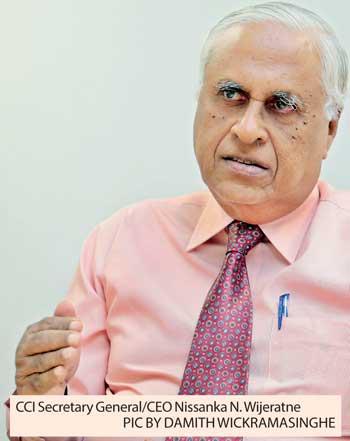13 May 2019 - {{hitsCtrl.values.hits}}
 By Shabiya Ali Ahlam
By Shabiya Ali Ahlam
Sri Lanka’s real estate and construction sector that was finally beginning to get on-track towards a fast-paced growth starting this year, has been hit hard by the Easter Sunday terror attacks, the economic impact of which the government is yet to quantify.
The Chamber of Construction Industry Sri Lanka (CCI), the apex representative body of construction sector stakeholders, shared that sentiments have worsened and the effects of the attacks will continue to be felt in the short to medium-term if no comprehensive effort is taken to uplift the industry.
“The current sentiment is very bad for the construction sector,” said CCI Secretary General/CEO Nissanka N. Wijeratne while speaking to Mirror Business on the status of the country’s construction landscape.
According to him, it is a culmination of several events starting from October 2018, where the political instability led to a setback on whatever developments that were putting the industry on the path of recovery.
“Then came the Easter Sunday terror attacks. With this current scenario the investors will think twice, and those who have already kicked off are already witnessing slowdown as they are unaware what lays in the future, specially private sector developers. There will be a lull period,” stressed Wijeratne.
The sector that expected a growth of about 4 percent this year is now expecting negative growth.
He pointed out that the attacks could lead to several companies going bankrupt, and as a result it would be difficult for architects and engineers passing out from universities, and those following vocational training courses to find employment, as projects are unable to progress.
“There will not be enough workload,” he said.
To overcome this situation, Wijeratne professed that there is a need for the government to jump-start the economy; and failing to do so could cause serious repercussions.
“We need an innovative approach. Like what former President Ranasinghe Premadasa initiated at the time, the 200 garment factory programme within three months, where each employed 500 people. We need something similar,” noted Wijeratne.
With the immediate hit being drastic, it was pointed out that it is imperative for the government to come out with concessions for the construction sector to help ease off the problems of contractors.
One measure suggested was to freeze the capital-land interest payment on all loans and over drafts (ODs) taken by contractors for at least six to 12 months, so that they are given some breathing space.
To ease the working capital problem, it was suggested for the government to look at extending soft loans at a reduced interest rate of 8 percent that is repayable over a period of 8 years.
“The amount of loan can be considered as 15 percent of the annual turnover during the last three years. This will help iron out issues to a certain extent,” he shared.The local construction sector contributed about 9 percent to the national GDP last year and provides employment for approximately 600,000 persons.
In recent years, the total annual construction turnover had been about Rs.800 billion and was expected to increase if investments planned by the government materialized.
15 Nov 2024 7 minute ago
15 Nov 2024 22 minute ago
15 Nov 2024 44 minute ago
15 Nov 2024 1 hours ago
15 Nov 2024 1 hours ago